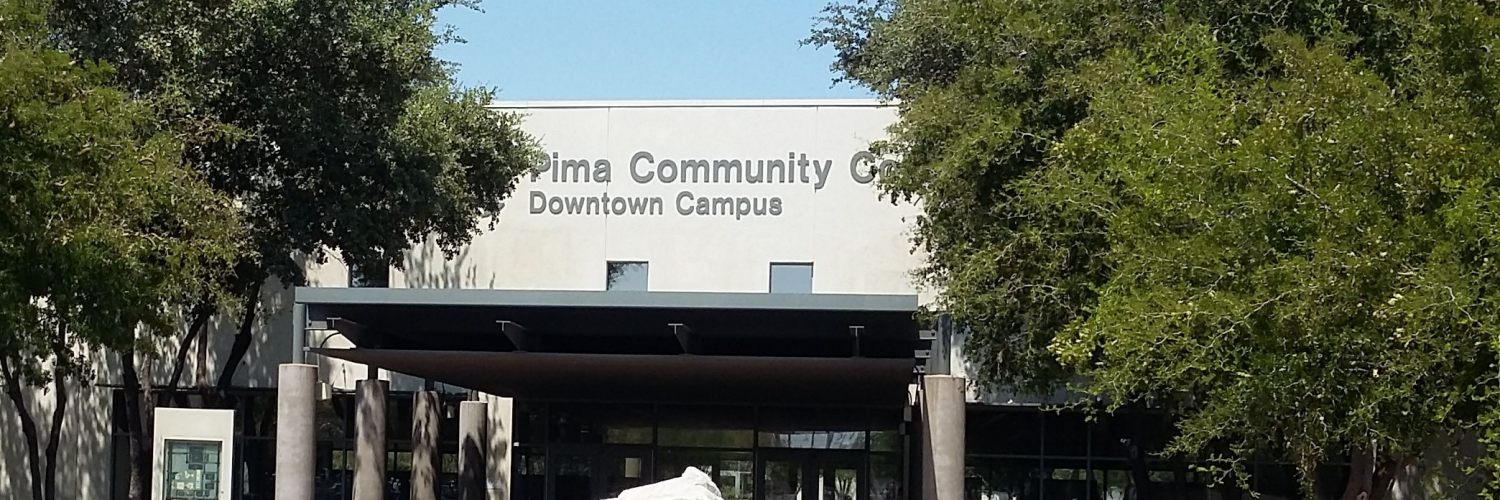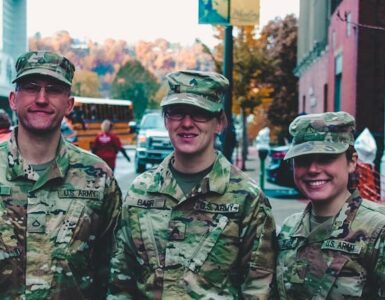Pima Community College Chancellor Lee Lambert has his sights on making the college a national leader for producing highly skilled technicians for industries like aerospace, defense, manufacturing, and healthcare during and after the pandemic.
“A lot of the work we were doing pre-covid was very important to how we’re navigating the current crisis. So, we’re putting a lot of focus around high demand job training aligned with industry needs in terms of that talent pipeline and building centers of excellence,” Lambert told Chamber Business News recently.
After being sidelined by the coronavirus last semester, the college is readying to reopen essential hands-on-training classes this month with safety protocols in place, he said.

“We want to bring back all of those critical programs that are needed for the frontlines of this crisis and get individuals into the workforce because they’re going to be needed more than ever as we move into fall,” said Lambert, a former Army vet who grew up on three continents and whose background includes decades of community service in economic development, education leadership, diversity and inclusion, and more.
Critical hands-on courses will reopen this month
With five campuses and multiple learning and education centers throughout greater Tucson, the college has many specialized training programs to help meet industry demands for skilled and qualified technicians now and in the future. Programs include aviation, aerospace, defense, advanced manufacturing, advanced automotive, cybersecurity, and healthcare, he said.
While the college will continue to provide a large portion of offerings and services online and virtually, it plans to reopen important hands-on courses this month with physical distancing and safety protocols in place.
Switch to eight-week courses to skirt flu season
The college also plans to split the fall semester in half, with two eight-week sessions in hopes of avoiding the flu season in between, Lambert said.
“Social and physical distancing will be a big part of that classroom experience. So we’re not going to be able to bring everybody back. It’s not going to look like it was when all those students were roaming around the halls with many staff members also there in person,” he said.

The campus will operate in a hybrid fashion with thousands of online courses. Personal protective equipment, health checks, and enhanced sanitary protocols will be in place to protect both students and staff on campus.
“The whole focus is around safety and health first. Then alongside that, trying to get our students to the finish line for their hopes and dreams to be fulfilled. So we’re going to be balancing all of that.”
Construction to start on expanded aviation facility
Meanwhile, construction is about to begin on the expansion of the college’s Aviation Technology Program. Though nationally recognized, it’s small size has limited its impact.
Now, it will be able to serve double the number of students and act as a magnet for new manufacturing industries to Arizona, Lambert said.
Last year, the state Legislature approved $15 million for the modernization and expansion of the facility that is adjacent Tucson International Airport. It is expected to open in late 2021 or early 2022.
HIgh demand, unique aviation programs
The PCC Aviation Center is the only facility in Arizona to focus on maintenance and repair training for large transport commercial aircraft.
Pima also is one of the few U.S. schools teaching the specialty of Advanced Structural Repair and Modification; is one of a handful of FAA-approved schools with curriculum covering commercial jet transports; and is one of only 87, or about half, of FAA-approved schools offering an Aviation Maintenance degree.
Currently, the program trains 125 to 150 students a year. Expansion will allow the college to train 250 students a year.
Pima County represents the largest concentration of aviation occupations. The College helps supply the workforce for 15 Arizona aviation employers.
Graduates’ median annual earnings range from $57,000 for aircraft mechanics to $65,000 for avionics technicians, not including overtime and shift differential pay.
Those in the program finish their studies with about an 85 percent success rate before they take their FAA exams.
Strengthening dual enrollment for high school students
Next on Lambert’s list is a focus on high school students. The college has been receiving more requests for dual enrollment courses and Career Technical Education.
As the pandemic changes the way education is being delivered, high quality online offerings are needed, he said.
“We have to do well by all of our citizens but I want to put particular focus on our youth and bringing our apprenticeship models back into play for registered and unregistered students. This will focus the job training programs so we get students real hands-on experiences while they’re still in high school and then we move them into the postsecondary piece, and then into the workplace quickly so they’ll be highly trained and highly disciplined to do the job.”
Fast facts:
$4K
first two years cost when student starts bachelor’s at Pima
92%
students who feel faculty make them feel welcome in their classes
19:1
student-faculty ratio
















Add comment